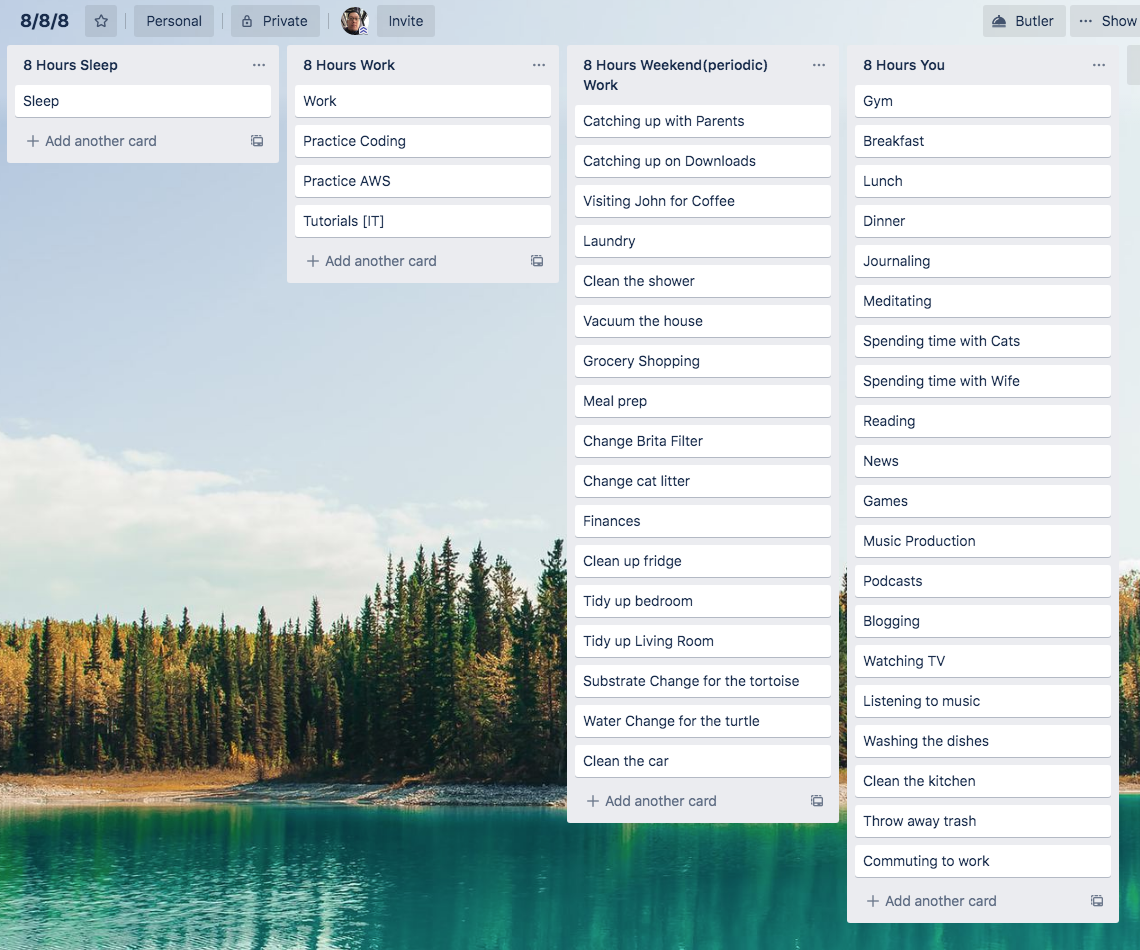8-8-8 Principle - Why it doesn't work... well for humans anyway.

For those who are consistently trying to hack a bit more time for yourself, and get more done with your life, you guys will have no doubt come across the 8-8-8 principle: which helps you segment your time into thirds.
24 Hours => 8 Hours for Work | 8 Hours for You | 8 hours for Sleep
Now this all sounds glamorous in theory, and, of course, incredibly simple… like how could we not have done this from the start?
Well hot damn!!! Let’s get started with this immediately. It’s so simple that anybody could start living life this way… well except, you come across quite a few limitations quite quickly.
What is the 8-8-8 Principle
It probably helps to have a bit of a background as to what each part is really achieving. I’m not going to plagiarise it because many people have wrote it much better than I have so here’s a link to an article that explains it in much more detail here. For now I’m just going to do the TLDR version of it:
24 hours in a day
- 8 hours dedicated to Work:
- Involves doing whatever it is to earn money
- 8 hours dedicated to You:
- Time dedicated to what you want to do (Hobby, friends, reading etc)
- 8 hours dedicated to Sleep:
- zzzzzzzz
- zzzzzzzz
Sounds great… how do we start?
Let’s start by sitting down, and actually writing down the tasks that you do on a daily/weekly basis. I’m going to use Trello for this because I use it for all sorts of planning and management stuff. So it starts off something a bit like this (Clean Slate):
After you’ve done that, let’s add the tasks into their respective category. We are done… but hang on, something’s not right with the weighting distribution on this:
Right. So there’s a bit of an odd weight distribution behind this. I think my main criticism behind this is there isn’t enough time to get some of these tasks done. And frankly some of the things in the YOU section aren’t things I would consider spending in my improvement time.
Let’s tweak a little bit of this. Some of the tasks in the You section aren’t necessarily things that I would do daily. They can either be set aside for the weekend, or done periodically. Let’s face it, on a weekend we’d probably spend a lot more time sleeping and a lot more time on you, than on work. However, for the sake of making this fair, let’s call some of the tasks Weekend/periodic work:
Now the weighting seems more even. So this new arrangement has a “7 day work week”. For me, that’s normal, having used to work 7 days in my teens.
Now that it looks a bit more sane, it still feels a bit off. I’m sure people do well using this type of system to manage their time any etc, but in my opinion there’s a few things that I don’t think have been accounted for.
- 8 Hours of work. Does that include your commute to work? I sure as hell consider it more work than I do time to myself… after all - have you ever tried getting a train home in UK. It’s painful…
- While we’re on the subject of travelling, if I need to travel to the gym, should that be included in the YOU time?
- Sleep 8 hours - yeah dream on. I haven’t heard many people able to sleep 8 hours. I’m looking at all you new parents.
- Also, what if you have children… or cats in my case. I’m not going to say that time spent with my cats is ME time. It’s time that I need to do something for my cat. I don’t really see how scooping their poop is going to benefit me.
- This is a bit controversial, but I think doing tutorials, or learning should be part of work time and not your personal time. This is on a company to company basis, I just happen to work in a company that allows it. Not every company will let you do this.
Why doesn’t this work?
This time management rule isn’t applicable to many humans nowadays. It’s probably applicable to my cats, who basically sleep all day long, get up for food, get up for hunting. They don’t have many cares in the world. In fact, the only person I can imagine this working for is single people. Anyone in a committed relationship or has dependants/children are really not going to get a long with this pattern.
In the UK, I’ve been lucky to never have a job that’s more than 8 hours per day. It’d be freaking crazy if it was… and my wife has had a job where it’s been a lot more than 8 hours per day - it’s just not a fun time. I’ve actually had jobs were it was 7 hour work days, and the other time was used to do something else. Back then, I felt I had a bit of a better grasp on time… that’s since gone now. Balancing time is a lot more of an art than just saying split it into thirds.
Who does it work for?
I think if you were going to use any type of time management pattern, this can be a good basis to work on, but just know that there are a few caveats to making this really work for you.
There’s no reason this couldn’t work for remote workers (people who work from home) because of the lack of commute. However, not everyone is that lucky.
I think another take home from this exercise is that it shows a bit of the chaos in your life. If you were to strategically place the work and use the 80/20 principle to squeeze all these into that 8 hour slot, you would definitely re-evaluate and change the amount of time that you spent on things. In fact, after this - I will be writing a follow up piece on slimming time on some crazy tasks.
While not a bad starting point to time management, this is not applicable to working professionals with families. This is possible for single people, however it’s still a push to do so.


